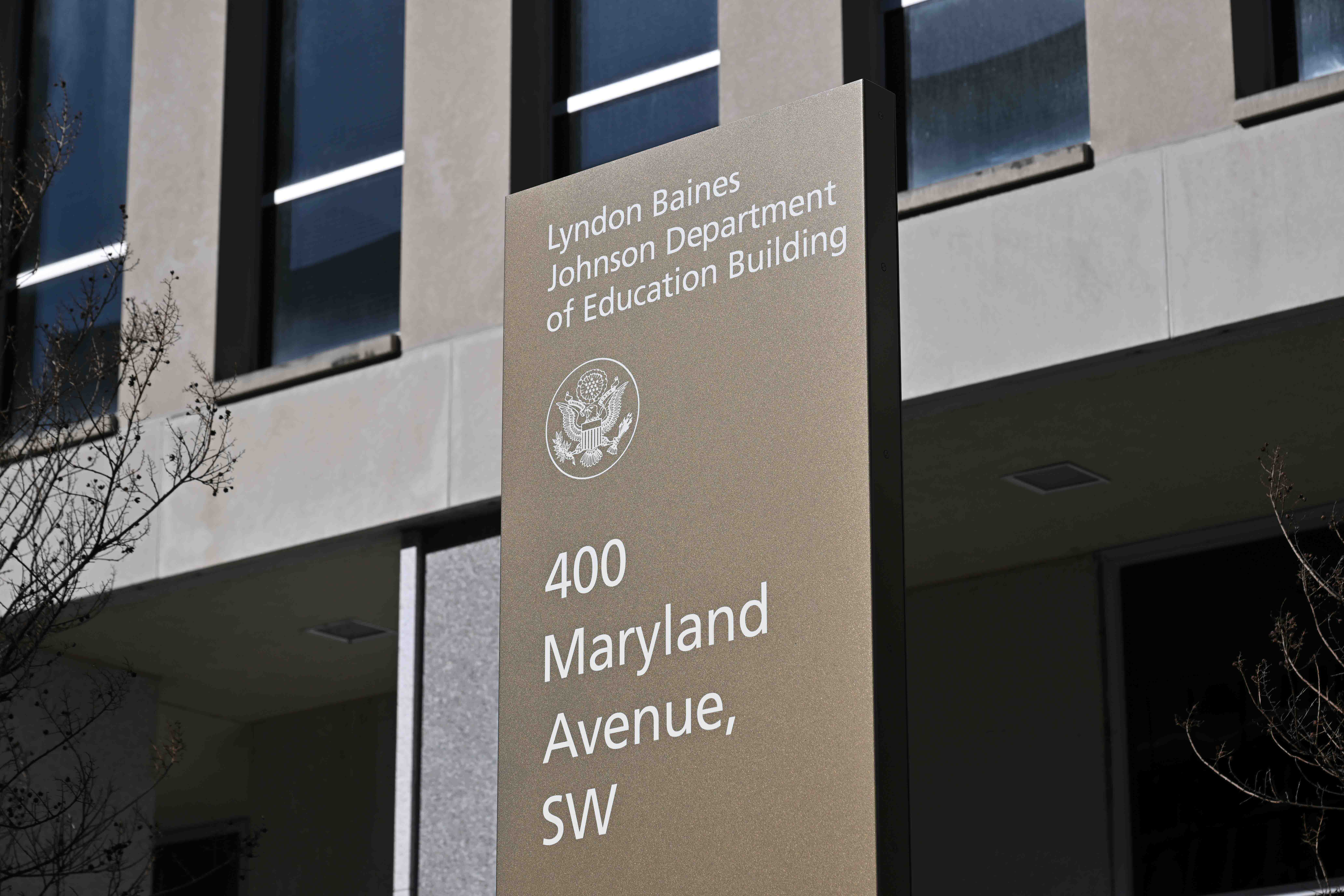Trump appoints Nicholas Kent to oversee universities as education undersecretary

The U.S. Department of Education is pictured. President Donald Trump nominated Nicholas Kent as undersecretary of education.
(Courtesy of G. Edward Johnson/Wikimedia Commons)
By Riya Abiram
March 11, 2025 9:51 p.m.
President Donald Trump nominated Nicholas Kent as undersecretary of education, where, if approved by the Senate, he will oversee federal policies impacting colleges and universities.
William Purdy, a professor of education and information studies at UCLA, said Kent’s nomination signals a shift from the Trump administration’s previous approach to education, with the new administration focusing increasingly on university settings.
“In the first Trump administration, there was no undersecretary of education,” Purdy said. “The fact that they’re filling it right away with Kent demonstrates a real commitment to higher education.”
Kent previously worked as the chief policy officer for Career Education Colleges and Universities, an organization that advocates on behalf of for-profit higher education institutions.
While CECU’s goals include expanding access to opportunities for students attending for-profit schools, according to their website, several CECU-affiliated colleges have transitioned to nonprofit status, a move that, according to HuffPost, may allow owners to avoid regulatory scrutiny.
Purdy said Kent’s affiliation with CECU is worrying.
“Nicholas Kent is part of a team that’s advancing private, ideological agendas through public service, and they’re directing policies, public policies toward for-profit institutions and private schools of all kinds,” he said. “Kent, and I would say Education Secretary (Linda) McMahon, they’re not reformers – they’re destroyers.”
Gov. Glenn Youngkin of Virginia appointed Kent in August 2023 as the state’s deputy secretary of education, where he played a key role in shaping and implementing the governor’s postsecondary education strategy, according to Inside Higher Ed.
Youngkin, a Republican, emphasized accountability and transparency, combating antisemitism and other religious bigotry and cutting diversity, equity and inclusion programs, according to the Office of the Governor website.
Sana Minhas, a fourth-year international development studies student, said she is concerned about the impact of scaling back DEI policies.
“DEI policies and the ability to apply to college knowing that you wouldn’t be discriminated against made a lot of students feel like they had a shot at higher education,” she said. “Without those policies, a lot of people are being discouraged again, and we took several steps backwards.”
Kent has also criticized policies made under the Biden-Harris administration, including guidance that made it possible for the Department of Education to hold school owners and executives personally responsible for financial losses if their institutions close, misuse federal aid or fail to meet financial obligations.
Kent pushed back on accountability measures included in the bill, arguing the administration overstepped its legal boundaries by imposing new regulations and subjective guidance.
Patricia Gándara, co-director of The Civil Rights Project at UCLA, said the implications of such a for-profit agenda may be dire.
“The way the federal government gets involved in local education is by helping to support students who have various challenges, whether it’s poverty or disabilities or language,” she said. “The idea that they’re not interested in the Department of Education and would put people in there who are involved in for-profit education tells you that these students will not fare well under this administration.”
However, Purdy added that Kent could be open to bipartisan collaboration. Specifically, Kent has shown interest in increasing Pell Grant awards, a financial aid program that provides assistance to millions of low-income students each year and receives support from both Democrats and Republicans, according to the National College Attainment Network.
The Trump administration has already attempted to cut billions of dollars from federally funded research grants, which, although blocked, would significantly impact research universities including UCLA. In the 2023 fiscal year, UCLA received over $580 million in National Institutes of Health funding, ranking 12th in the nation in funding among research institutions.
Trump has also attempted to crack down on campus antisemitism – including by creating a task force that is currently investigating the UC – and lifted restrictions on immigration enforcement operations on college campuses.
[Related: Department of Justice opens investigation into antisemitism allegations at UC]
Trump also plans to issue an executive order abolishing the U.S. Department of Education, according to a draft of the order obtained by the Wall Street Journal.
However, Purdy said in addition to institutional pushback, people who are concerned about higher education have options to get involved.
“Those who are concerned with the Education Department’s seemingly radical new terms should make their concerns absolutely clear to their congressperson, to their elected representative,” he said. “The strongest checks on executive action will come from the legislature, Congress and the courts,” he said.